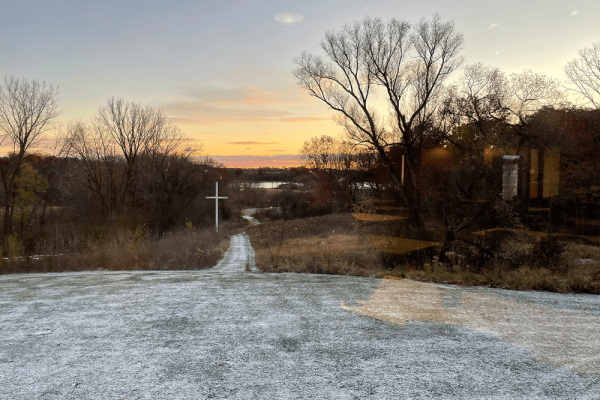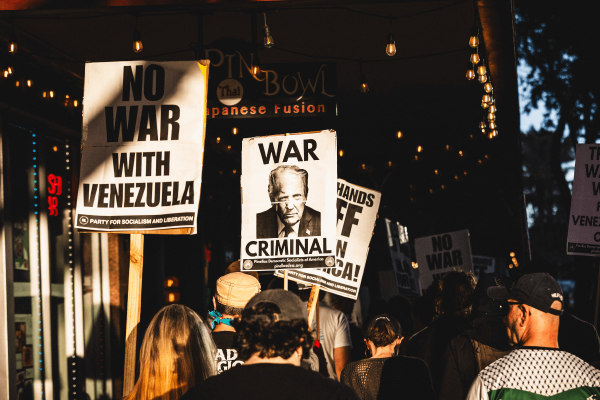Whether it’s in a dark room with a fog machine or in a classic sanctuary with a hymnal, our church worship gatherings are geared to numb us out and avoid pain. We show up, sing songs of hope, exchange greetings, and leave without talking about the death around us. If someone (often a prophet) suggests we talk about pain and injustice, someone else is right there to accuse them of not bringing in the hope of Jesus. We are addicted to spiritually bypassing the pain.
In his book Prophetic Lament, Soong-Chan Rah dives deep into the U.S. church’s masterful avoidance of lament: the language of suffering. While 40 percent of psalms in the Bible are psalms of lament, our churches only sing songs of lament between 13-19 percent of the time. From this avoidance of suffering, we over-emphasize praise and celebration.
To only have a theology of celebration at the cost of the theology of suffering is incomplete. The intersection of the two threads provides the opportunity to engage in the fullness of the gospel message. Lament and praise must go hand in hand. — Soong-Chan Rah.
Spiritual bypassing is not exclusive to Christians or white people, but I would argue we are the most guilty collective of practicing and enforcing it. We maintain systems and cultures that coerce all of us to assimilate into the practice of bypassing pain. In our anger-phobia, we shame oppressed people into the compliance of feigning joy. Worse than that, we tell them and ourselves — either simplicity or explicitly — that justice work is a distraction from the gospel message.
It’s not necessarily our fault that we are this way. We unthinkingly internalize and proclaim justice as a distraction from the good news of Jesus because, despite the fact that our Bible tells us differently, we have been conditioned by a story.
Despite the fact that Jesus repeatedly proclaimed to be about the work of justice, we repeatedly tell a different story. This story pits individual relationship with Jesus against the call to justice — this story is not working for us. Either-or thinking has birthed the narrative that we must choose between justice and Jesus. Despite the facts leaping off the pages of our Bibles, we repeat the binary. The serpent has served us up a lie-ridden, toxic apple that we consume and serve up to others.
The church is not the only culprit. Those of us disillusioned with the faith lineages our people come from frequently escape into Eastern spiritual traditions.
Our pursuit of Eastern spirituality as white people is often an attempt to escape the roots of violence our people have enacted and been complicit in. We run away to nature, India, or Latin America to meditate, tree pose, permaculture, and breathe our way out of the reality that we live in an empire dominating the world along the lines of class, race, and gender. Our attempts to go anywhere else on the globe to get away from this reality are futile. We cannot bypass the truth and holing ourselves off will not save us. We cannot escape our global, interlocking crises of oppression. Why do we keep doing this?
Mark Charles has an answer for us:
We as white people are traumatized. This sounds confusing because we tend to associate the concept of trauma with people of color — but we forget that we too have been exposed to a multi-generational process of dehumanizing violence. Charles exhorts us to consider: If there is such a thing as Perpetration Induced Traumatic Stress (PITS) in the psychological field, then could white Americans be suffering from it? We do happen to be exhibiting all the symptoms like:
- Shock and denial
- Anger, irritability, mood swings
- Anxiety and fear
- Strong reactions to triggers of the trauma
- Avoidance of anything that reminds you of the trauma
- Feeling disconnected and numb, depressed
- Guilt and shame
As a traumatized people, we require a trauma-based intervention. Which means we need practices and spiritual tools to stay in touch with reality so that we don’t keep dissociating into spiritual bypass land.
The good news is that God has given us a spiritual prescription for our trauma — we can begin again to honor the practice of lament. We can connect with the pain. We can ground ourselves in the realities around us. We can experience the fullness of the gospel message. We can lament.
This article was originally published on Medium.
Got something to say about what you're reading? We value your feedback!






